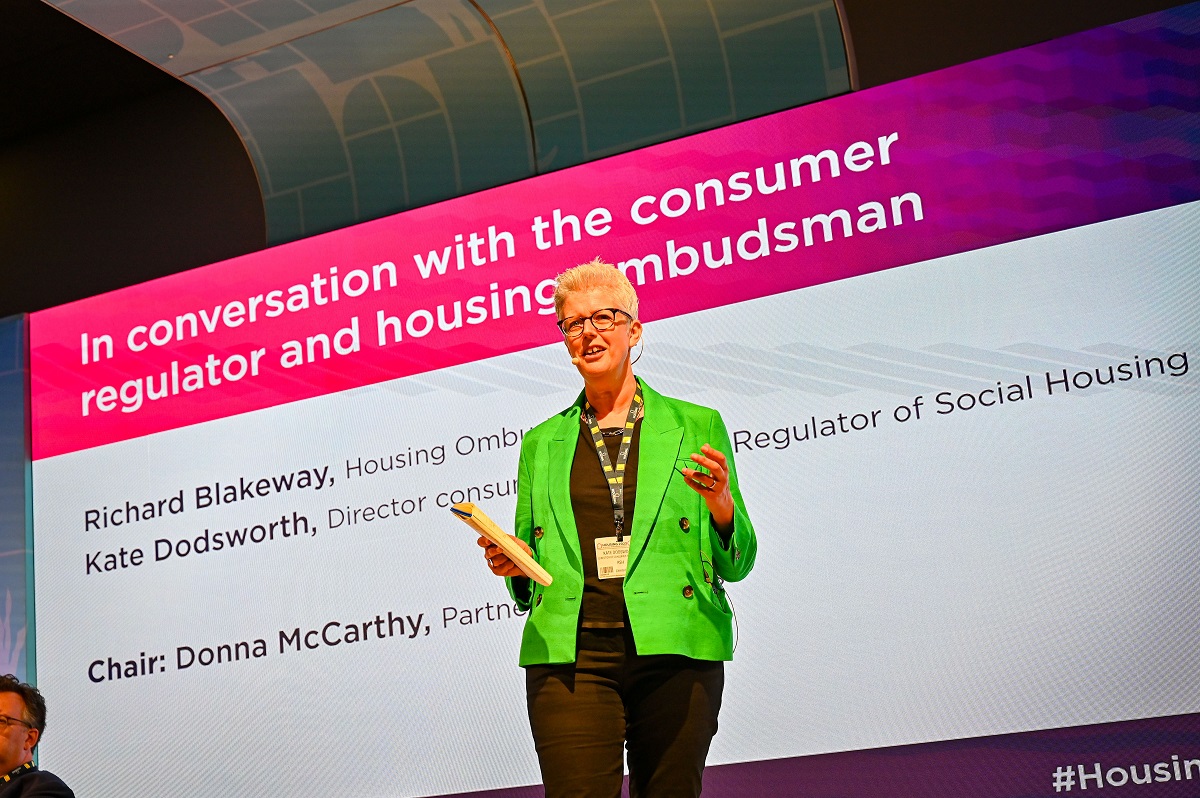
Brendan Sarsfield is chair of Sustainability for Housing and former CEO of Peabody
Do you really have a data management strategy you can rely on?
Since I stopped being a housing association chief executive, the challenges social landlords face have grown. Brendan Sarsfield asks: do organisations have the data management strategies to cope?
Eighteen months ago, and after 20 years, I stopped being the CEO of a housing association and took on other roles. A lot has changed in that short time and I’ve been reflecting on some of those changes.
The new roles have also helped me see things differently. Two of my new roles make me look at how the sector manages data. First, as chair of Sustainability for Housing, the organisation set up to promote and develop ESG reporting in the sector. The second as a consultant at NEC Software, a major provider of housing software to the sector.
The first has made me look at data at a strategic level. With the second I’ve been looking more at data management and data quality. Here are my reflections on the changing importance of data in housing.
All stakeholders have an increasing interest in what you are trying to do and how you are performing, not just the finance sector, and they expect this to be accurate.
Historically, at a senior level, data was a strategic tool, eg helping you decide how and where to direct resources. We also knew that good detailed data was essential if you want to deliver consistent quality homes and services, but it was often seen as an operational issue. Now boards and executives need to know they are getting the detail, as well as the strategic data right. The Housing Ombudsman recently highlighted how data was letting the sector down. Without solid data your IT initiatives will be ineffective. I would argue that your data strategy is now more important than your IT strategy.
“A 1% error rate in a large organisation is a lot more mistakes than in a smaller one”
It may be obvious, but the more homes you have, the better the quality of your data and data control needs to be. Being large has many benefits, but the bigger you are, the less tolerance there is for error. A 1% error rate in a large organisation is a lot more mistakes than in a smaller one. With size comes greater responsibility for managing the detail. Good data and data management are your friends, but do we prioritise this in mergers?
Another aspect of size is the increased risk of data sprawl: having data in many different systems that can be pulled together, but pulling it together takes time and effort. This can lead to data not being available when needed or opportunities for human error to creep in.
The key to good data control is simplicity of data collection, analytics that are part of the system and data quality checks. Any data that is collected by a human being will be subjective. A level of cynicism about the source and quality of data is needed to improve management control. Where’s the quality assurance on your data?
Everybody gets frustrated about data quality but have you a data management strategy to get the data you need and can rely on? The data you need today isn’t always the data you needed five years ago and isn’t the data you will need in five years’ time. How you look at your homes and services will change over time, and how they sit in the wider world will be perceived differently. Standards change, new priorities emerge. The whole process needs a strategy and management to work effectively.
Today, everyone is hopefully more sensitive to managing damp and mould problems. Whether a home is susceptible to damp and mould is a complex mix of property and people data. Are we using data intelligently to guide us where to be proactive or just to tell us where it has occurred in the past?
“The data you need today isn’t always the data you needed five years ago and isn’t the data you will need in five years’ time”
Talking of damp and mould, the question the sector hasn’t been able to answer yet is whether this is a big problem in a small number of homes, or the tip of a systemic deeper problem. The lack of data and communication from landlords (individually and collectively) leaves the press and the public to answer that question for you.
This is a huge challenge for a sector struggling with regaining the trust of some stakeholders. Good data leads to good context and good comms. You can’t speak with confidence without it.
Transparency matters. Standard ways of collecting data and benchmarking performance (like the Sustainability Reporting Standard) help the sector tell its story and improve standards. Publicly sharing data is a cultural thing but still many are secretive about their performance. I think that leaves a lot open to interpretation by stakeholders.
The challenges you face have grown since I stopped being a CEO.
The job has got tougher, expectations have risen. The challenges are surmountable but not without some different thinking, utilising information better and turning talk into actions. The Better Social Housing Review is a good start and we need to build on it, but don’t forget the importance of data in confidently delivering change.
Brendan Sarsfield, chair, Sustainability for Housing
Sign up for our daily newsletter
Already have an account? Click here to manage your newsletters













